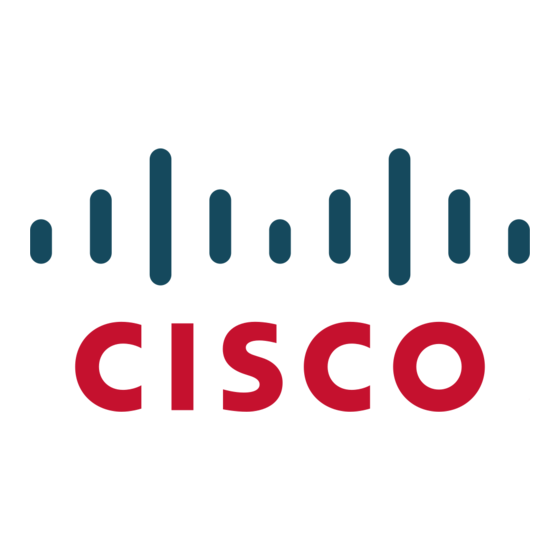Cisco UCS B200 M3 Note d'installation et d'entretien - Page 5
Parcourez en ligne ou téléchargez le pdf Note d'installation et d'entretien pour {nom_de_la_catégorie} Cisco UCS B200 M3. Cisco UCS B200 M3 28 pages. Blade server
Également pour Cisco UCS B200 M3 : Manuel d'installation (34 pages), Note d'installation et d'entretien (36 pages), Note d'installation et d'entretien (37 pages), Manuel (8 pages), Manuel de mise à jour (21 pages)

3
Drive Replacement
Each blade has up to two front-accessible, hot-swappable, 2.5-inch drives. Unused hard drive bays should always be covered with
cover plates to ensure proper cooling and ventilation.
You can remove and install hard drives without removing the blade server from the chassis.
The drives supported in this blade server come with the drive sled attached. Spare drive sleds are not available. A list of currently
supported drives is in the specification sheets at this
URL:http://www.cisco.com/c/en/us/products/servers-unified-computing/ucs-b-series-blade-servers/datasheet-listing.html
Before upgrading or adding a drive to a running blade server, check the service profile in Cisco UCS Manager and make sure the
new hardware configuration will be within the parameters allowed by the service profile.
Caution
To prevent ESD damage, wear grounding wrist straps during these procedures.
Removing a Blade Server Hard Drive
To remove a hard drive from a blade server, follow these steps:
Procedure
Step 1
Push the button to release the ejector, and then pull the hard drive from its slot.
Figure 3: Removing the Hard Drive
Step 2
Place the hard drive on an antistatic mat or antistatic foam if you are not immediately reinstalling it in another server.
Step 3
Install a hard disk drive blank faceplate to keep dust out of the blade server if the slot will remain empty.
Installing a Blade Server Drive
To install a drive in a blade server, follow these steps:
VGA connector for a monitor
4
2-port USB connector for a
mouse and keyboard
5
